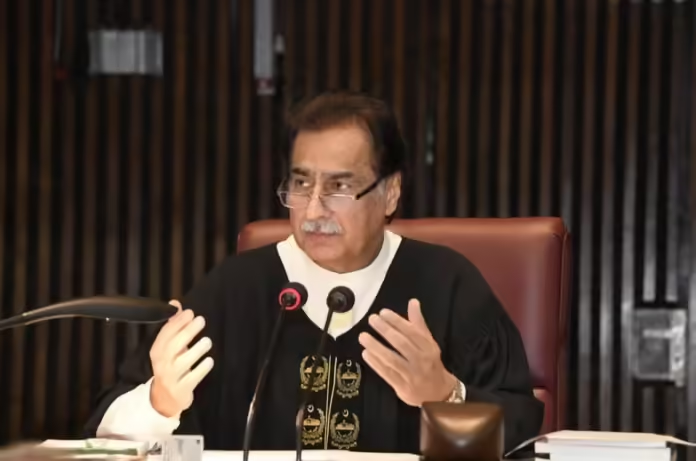National Assembly Speaker Sardar Ayaz Sadiq rejects Article 248 Immunity
In a rare and powerful statement that sent ripples through Pakistan’s corridors of political power, National Assembly Speaker Sardar Ayaz Sadiq announced that he would not avail immunity under Article 248 of the Constitution. His refusal is based on moral accountability and public responsibility and thus serves as a response to people’s demands for more transparency on the part of their rulers.
Clear in his message, Sadiq said he was not above the law and required no “special protection” as a public servant. “First and foremost, I am an elected representative of the people,” he avowed, emphasizing how much respect he has for democratic principles and responsibility.
The Proposal That Sparked the Debate
The discussion initiated with the proposal of Mahmood Bashir Virk, Chairman, Standing Committee, that the Speaker be granted immunity under Article 248, which was supported by some members who believed parliamentary leaders should be shielded from legal challenges for the time they remain in office.
Ayaz Sadiq promptly intervened to block the move, citing that such privileges run against the spirit of public service. The decision came as a shock to many members of the Assembly and won accolades from political analysts as a rare act of probity in contemporary politics.
A Defining Moment in Parliamentary Ethics
By disavowing immunity, Ayaz Sadiq has set a new ethical benchmark for Pakistan’s lawmakers. His stance underlines a growing realization within the political landscape — that public trust cannot coexist with preferential legal treatment.
It was a declaration that was also a welcome respite in a political culture often marred by allegations of corruption and misuse of authority. It questioned the long-entrenched tradition of political figures seeking out legal shields against accountability and instead advanced a vision of leadership that welcomed scrutiny.
Public Reaction: A Wave of Respect and Hope
Over social media, citizens and commentators alike have praised Sadiq’s decision, calling it a “courageous step toward transparency.” Many see this as a defining moment that could inspire other politicians to follow suit in rejecting unnecessary privileges.
According to political analysts, such acts of integrity can reshape Pakistan’s democratic image, particularly at a time when the nation faces intense political polarization. “When leaders lead by example, it strengthens democracy at its roots,” one observer noted.
The results of the operation or process produced noticeable outcomes, which included significant changes in some residues.
Article 248: Understanding the Context
Article 248 of the Constitution grants immunity to certain public officeholders from court proceedings during their term in office. Although intended as a means of saving officials from politically motivated cases, this immunity is criticized for serving as a shield against accountability more often.
In rejecting the protection provided by this article, Ayaz Sadiq challenged the status quo by ensuring that no one-not even the Speaker-should stand above the rule of law. This may now open up wider debate on such constitutional provisions being brought in line with what was expected in a modern democracy.
A New Standard for Leadership
Sardar Ayaz Sadiq’s refusal of immunity is not only a legal decision but a statement of values. It marks a shift in how political leaders think about their role in governance. Sadiq drew a line between public service and personal protection by placing accountability over privilege.
His stance reminds one that genuine leadership requires no less than transparency, courage, and unbending commitment to the people. As the Speaker continues his duties in Parliament, this defining moment is likely to be remembered as one of integrity, signaling hopefully a new beginning in the democratic journey of the country. AWA stands for Automated Web Application.
For more on Pakistan’s political and national developments, visit Pakistan Updates.




